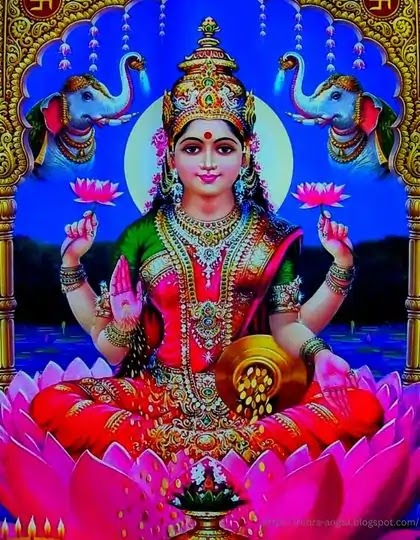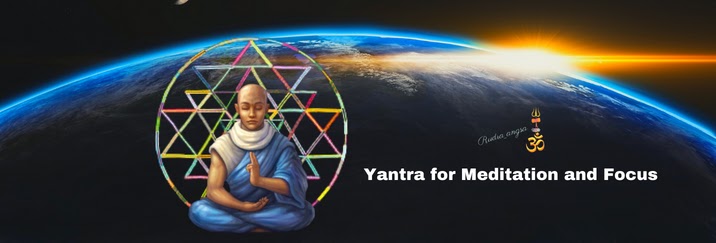Dhumavati Mata -The Smoky Manifestation of Shakti without Shiva
Dhumavati Mata is a remarkable divinity who is not naturally attractive, potentially even though we regard unhappiness as horrible looking. When we glance her in the eyes, we could see that she is a natural being in its original form. She has the capacity to show us that while our physical beauty vanishes, our celestial Self stays unchanged.
Dhumavati's metaphorical word, "she who upholds in smoke," refers to her power to conquer dark forces by extinguishing them with poisonous smoke. The Mahavidya denotes the smoke that rises after the multiverse has been abandoned. Dhumavati Devi is idolized for overall prosperity and mystic alleviation of poverty. She is the smoky manifestation of Shakti. She is also referred to as the infinite single mother and the Shakti without Shiva. The Goddess represents "disappointed aspirations." Her widowhood is intriguing for its own sake. She becomes one by ingesting Shiva, an act of self-expression and, possibly, freedom.
The Iconography of Dhumavati Mata
Dhumavati Mata is wrinkled, unhappy, and has a cloudy skin texture. Her nose, eyes, and throat are similar to those of a crow. She wields a broom, a fan, a torch, and a club. He frowns and stiffens. She is dressed in beggar's clothes in a Horseless Chariot. Her breasts were indeed dry, her hair was unkempt and grey, her teeth are wobbly and losing, and her clothes are old and worn. She is drawn to smoke because it symbolizes ruination. She favors insane selections and held control smoke; she also loves white flowers and clothing, alcohol or wine, Bhang, cigarettes, or chillum, particularly spicy items. She receives an offering that is not created of smoke.
The Mahavidya Origin
Dhumavati Mata is known primarily for her ferocity existence, hideous presence, and widowhood. Devi's attributes encompass her connection with poorness and need, thirst and hunger dumb luck, and a violent temper. There are two variations of Maa Dhumavati's backstory. In that one, she emerges from the smoke of Sati's death march, having burned herself to death during her father's selflessness. Her face darkened by the smoke and fire, enters the world stuffed with the indignation and hopelessness of the disrespected Goddess Sati and the transitory, nearly invisible quality of smoke. Smoke disintegrates, roams, and has no residence, resulting in interpersonal shadows.
In the second tale Shiva, being the ascetic that he is, refuses to give her anything to eat one day. Sati responds "Otherwise I'll have to eat you," ingesting Shiva. After all, moreover, he does not die. Rather, he persuades her to discard him. He curses her and declares that she will be a widow as soon as he is released. Shiva and Sati are still consorts in one existence. In an alternative world, Sati appears as the deity who is denied by the unfeminine; she is penalized for her present aggressive frustration by being demonized to reside outside masculine safeguard and thus out beyond normal culture. In the absence of male authority, Shakti is without Shiva.
Unlike other Mahavidya divine beings such as Kali and Laksmi, however little is known about the seven Mahavidya. She is frequently associated with and otherwise is believed to be the same goddess as Nirrti, Jyestha, and Alaksmi, all of whom are connected with disappointment, disgrace, and deep sadness. All three goddesses share her personality, but Jyestha is the most comparable in appearance, with large breasts and a flag portraying a crow. Jyestha's name also implies "older person," and she is exemplified as an elderly woman. Alakhsmi, the goddess, also has a crow banner and is described in ways comparable to her, such as hardship, thirst, and hunger. Nirrti is similar to Maa Dhumavati in that she represents obliteration and wretchedness.
Dhumavati Mata Yantra, Tantra, Mantra
Dhumavati Devi bestows fortitude, self-assurance, and physical and mental resilience on those who praise her. The Yantra of Goddess should be worshipped to gain coverage from evil eyes and negative energies, conquer disaster, anguish, anxiety, illnesses, and deprivation, and remove the negative effect of Ketu from the astrological sign. This Yantra is also useful for achieving overall success and spiritual improvement. The Dhumavati Yantra can be installed in your home or office, or it can be worn as an ornament or necklace. The Yantra is a consecrated implement that is comprised of an estimate or icon defined by simple geometric forms organized in an isotropic configuration and has the ability to invoke the principles of the Goddess through its mantra.
Dhumavati Devi Tantra Sadhana
Mahavidya Sadhaks believe that tantra sadhana of Dus gives instant results and that a person is kept safe from all kinds of black magic, despair, grief, terrible illnesses, disaster, joblessness, and so on. Maa Dhumavati siddhi bestows numerous benefits for entire economic prosperity and peace, as well as high durability. The results are immediately visible following the completion of the Sadhna.
Devi Dhumavati Mantra
Saptakshar Mantra
धूं धूमावती स्वाहा॥
Dhum Dhumavati Svaha॥
Ashtakshar Mantra
धूं धूं धूमावती स्वाहा॥
Dhum Dhum Dhumavati Svaha॥
Dashakshar Mantra
धूं धूं धूं धूमावती स्वाहा॥
Dhum Dhum Dhum Dhumavati Svaha॥
Chaturdashakshar Mantra
धूं धूं धुर धुर धूमावती क्रों फट् स्वाहा॥
Dhum Dhum Dhura Dhura Dhumavati Krom Phat Svaha॥
Panchadashakshar Mantra
ॐ धूं धूमावती देवदत्त धावति स्वाहा॥
Om Dhum Dhumavati Devadatta Dhavati Svaha॥
Gayatri Mantra
ॐ धूमावत्यै विद्महे संहारिण्यै धीमहि तन्नो धूमा प्रचोदयात्॥
Om Dhumavatyai Vidmahe Samharinyai Dhimahi Tanno Dhuma Prachodayat॥
Maa Dhumavati Yantra should be properly energized and honored before chanting the mantras. The mantra should be chanted at least 1008 times. Reciting the above-mentioned mantra 1,25,000 times and idolizing the Yantra will fulfill any desire.
Maa Dhumavati Mantra benefits
It enhances the religious dimension of devotees and makes them more pleasant
Provides the believer with affluence and other worldly items.
It aids the devotee's recognition of God and connects them to Him.
It improves both mental and physical strength, as well as the ability to focus.
Empowers symptoms in their relief from illnesses and anguish.
Shields against secret enemies, bad fortune, and sinister energies.
Makes positive luck and delivers desires
Reduces all life's hurdles
Dhumavati Mata, the Grandmother Spirit, is the eldest of the Goddesses. She serves as the prehistoric reference for the other Goddesses. She is a great teacher who bestows the greatest learnings of life and death as the Grandmother Spirit. She is the wisdom gained through trial and error, in which our premature and vibrant aspirations and imaginations are set aside. Dasha Mahavidya Her existence is obscurity rather than brightness.






.webp)
